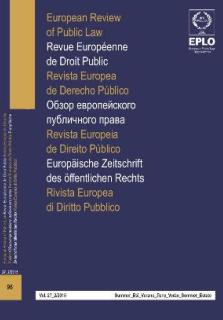
LE PRISME DU PAYSAGE: UN PARCOURS ITALIEN
SERGIO FLORIO
Avocat - Docteur de recherche en droit public
dans les Universités de Pise (Italie) et Toulon (France)
In Italy, the landscape has often followed its own course next to the one of culture, history, art, tradition, and therefore next to the settings and environments of life of the populations, either local or national, but also of urbanism, architecture and building. And this, before the signature of the European Landscape Convention of 2000. Italy has been the first nation worldwide which has imposed the protection of the cultural heritage and of the landscape as a fundamental principle of the Constitution but laws throughout time protected, with non-adjusted effects, first of all limited parties of the territory and subsequently more extended ones. Planning has always been deficient and therefore the State, starting from the year 2010, introduced a binding opinion on landscape authorisation. The conclusions announce the existence of a genuine landscape law but it is always necessary that the State covers a fundamental role and that the competences are distributed with the necessary accuracy and binding discipline.
En Italie, le paysage a souvent réalisé son propre parcours à côté de celui de la culture, de l'histoire, de l'art, de la tradition et donc, des cadres de vie des populations, locales ou nationales, mais aussi de l'urbanisme, de l'ar-chitecture et du bâtiment. Tout ceci, bien avant la signature de la Convention européenne du paysage de 2000. L'Italie a été la première nation au monde à imposer la protection du patrimoine culturel et du paysage dans les principes fondamentaux de la Constitution mais les lois au cours du temps ont protégé, avec des effets non ajustés, tout d'abord parties limitées de territoire et successivement plus étendues. L'aménagement a toujours été carencé et donc l'Etat, à partir de l'année 2010, a introduit l'avis contraignant sur l'autorisation paysagère. Dans les conclusions, l'existence d'un droit véritable au paysage est annoncée, mais il faut toujours que l'Etat recouvre un rôle fondamental, et que les compétences soient réparties avec exactitude et avec la discipline contraignante propre.





















